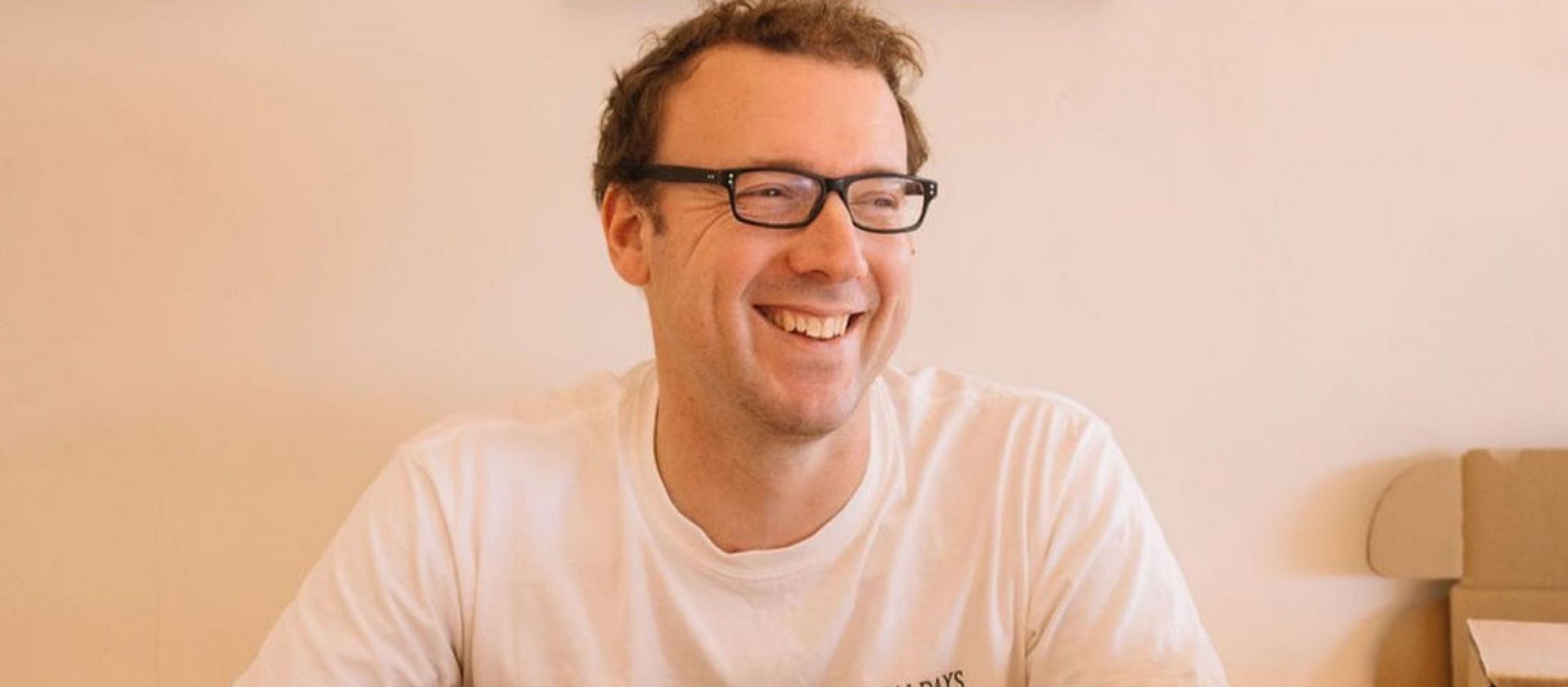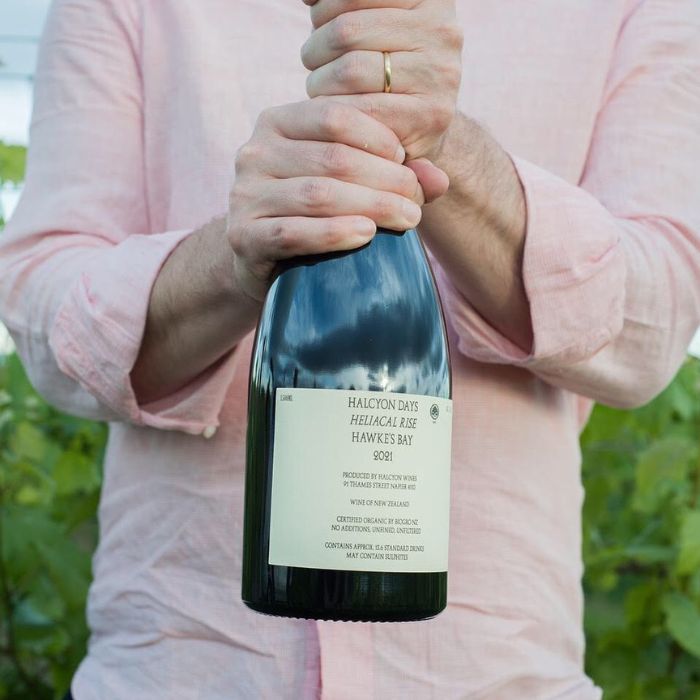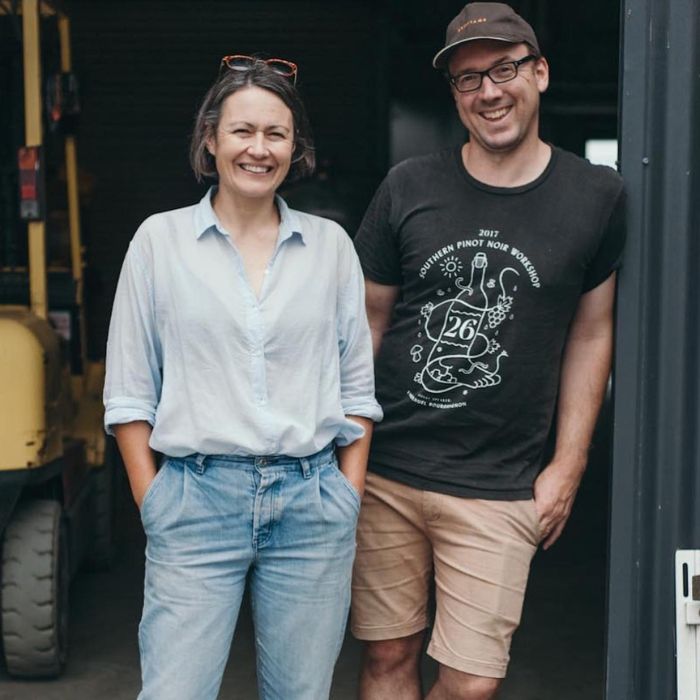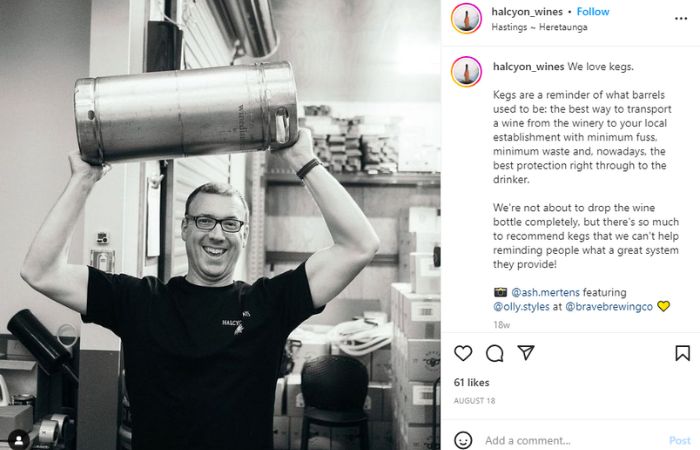Registration Open
1 June 2025
Judging
Date
23 & 24 March 2026
Winners Announcement
22 April 2026
1 June 2025
23 & 24 March 2026
22 April 2026

Oliver Styles has a perfect definition of a good life - an 8-hour work day, 8-hour sleep, and 8 hr recreation time. He is co-owner of Halcyon Days wines, writes for various magazines, and is the winemaker for his wines as well. He uses time-honored methods to create living wines that are a dynamic expression of Aotearoa New Zealand. Halcyon Days wine is made with organic grapes from BioGro-certified vineyards in the Mangatahi and Bridge Pa subregions of Hawke's Bay.
I spent six years writing about wine and helping Decanter set up the World Wine Awards. I then met my partner Amy, who had been a winemaker all the time I was writing about it, and moved to Spain and worked as a cellar hand in Spain, France, and NZ before getting my winemaking qualifications working up to assistant winemaker and then winemaker.

Image: Halcyon Days wines; Source: Instagram
My wife and I share winemaking duties for our own natural wine brand - Halcyon Days - and I'm most busy during harvest. My day job is as a staff writer for wine-searcher.com, a contributor and taster for numerous magazines and publications and I edit a twice-yearly wine magazine.
I think if you start in the wine industry at any level in any field it crosses your mind. My main inspiration was the late Didier Dagueneau, who I interviewed many years ago now, and that got me thinking that I might like to change my hand and make wine one day.
This is a question I don't really like the answer to - on a couple of levels. But firstly, yes, a winemaker can help people (either consumers or those who sell your wine) get the background to what is happening and what is happening behind the wine's scenes. Winemakers can really help to get a sense of wine. However, there are two slightly more dangerous elements at play and they kinda interweave the cult of the winemaker and the notion that the winemaker holds the key to understanding their wine. The latter isn't really true: a winemaker can help understand a wine but s/he can't force you to like it - no one can but you. Secondly, the cult of the winemaker is, for sure, great for helping to sell wine, but it has led to some really noxious behaviour in the industry - entitlement, abuse of position, etc.

Image: Oliver and Amy Hopkinson-Styles; Source: Instagram
A good person.
Trying to make the best decision - or (even worse) thinking through what the best decision is and holding to it. But the hardest is admitting to yourself and others that you made a decision wrong. That happens sometimes and it happens to everyone. That's what we tell cellar hands: you'll screw up - but you'll be judged by how you manage the fallout of the screw-up.
I'm a fencer and I've represented New Zealand internationally (I also coach fencing); I also get to go into the hills camping and fly-fishing, I love to cook, play music, watch films - all sorts.
[[relatedPurchasesItems-38]]
A lot of winemakers have effectively become middle management which often means they're working against the best interests of the people below them and the very wine they make. They are often pressured to do things like reduce staff costs, or costs generally, which means things like less hands-on techniques or more automation or higher workloads and burnout/disaffection among staff below them, generated by their own role. You can kid yourself that such things as automated pump-overs are "just as good" etc or that roughly tangibly similar results are achieved by automation but the wine industry (in my view) shouldn't be about industrialized production. This also means that fewer and fewer people are getting skilled-up in the industry. Wine is a social beverage - its production should be social too.

Image: Oliver Styles; Source: Instagram
I am very lucky in that I am constantly learning about new aspects of wine every day - mostly through my other roles.
8 hours sleep; 8 hours work; 8 hours recreation. With free weekends and a good holiday allowance. I'd like to retire early too but also I'm very blessed in that much of what I do, I wouldn't want to retire from. That's already pretty good. I want to be able to go to France more though!
Oberon Kant's Big Book of Wine; Jancis and Johnson's Wine Atlas; Broadbent's vintage wine
The 2026 International London Wine Competition submission is now open. You can enter your wines now to get the super early bird pricing.